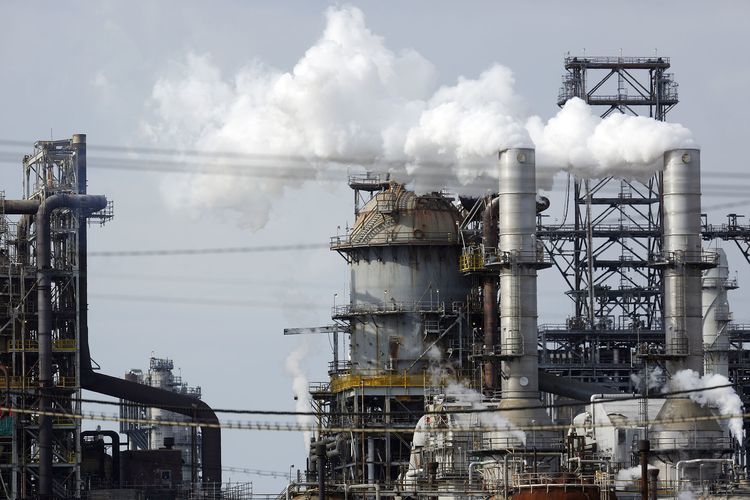
Oil headed for a third weekly drop as rising supplies from the U.S. to Nigeria showed that OPEC is still struggling to clear a global oil surplus.
Futures were little changed in New York, down 3.9 percent this week, and close to the levels traded when OPEC agreed output curbs in November. U.S data released Wednesday showed oil and fuel stockpiles rose, going against expectations of further declines. American crude output is also seen surging in 2018 to a record above 10 million barrels a day. In Nigeria, Royal Dutch Shell Plc lifted restrictions on exports of a key grade halted for more than a year.
Oil has largely given up its gains after the Organization of Petroleum Exporting Countries and its allies including Russia agreed late last year to curb output. A persistent glut amid a 548,000 barrel-a-day increase in U.S. production this year has kept prices under pressure. Even this week, the oversupply has kept oil in check amid turmoil in the Middle East, the world’s largest producing region, as a Saudi Arabia-Qatar diplomatic feud flared and suicide bombers struck Iran’s capital Tehran.
“The short-term outlook is not much brighter for oil,” said Jens Naervig Pedersen, a senior analyst at Danske Bank A/S in Copenhagen. “Crude stocks are done adjusting lower, demand looks weak, the market is ignoring geopolitical tensions in the Middle East. Fundamentally we are approaching a natural floor for prices though, where shale producers will have to start scaling back on plans to raise output further.”
West Texas Intermediate for July delivery was at $45.80 a barrel on the New York Mercantile Exchange, up 16 cents, at 9:42 a.m. in London. Total volume traded was about 30 percent above the 100-day average. Prices lost 8 cents to close at $45.64 on Thursday, the lowest since May 4.
Brent for August settlement rose 16 cents to $48.02 a barrel on the London-based ICE Futures Europe exchange. Prices are down 3.9 percent this week. The global benchmark crude traded at a premium of $1.97 to WTI for August.
Libya resumed production at the Sharara oil field, the nation’s biggest, and output will reach normal levels within three days, National Oil Co. said on its website. It closed Wednesday after a protest by workers, according to a person with direct knowledge of the matter.
Oil-market news:
Options to buy 10 million barrels of Brent crude for $80 a barrel in December traded Wednesday, far exceeding the next-largest contracts. Nigeria’s four state-owned refineries are currently operating at less than 25 percent of combined capacity, according to Emmanuel Kachikwu, minister of state for petroleum.
Recommended for you
